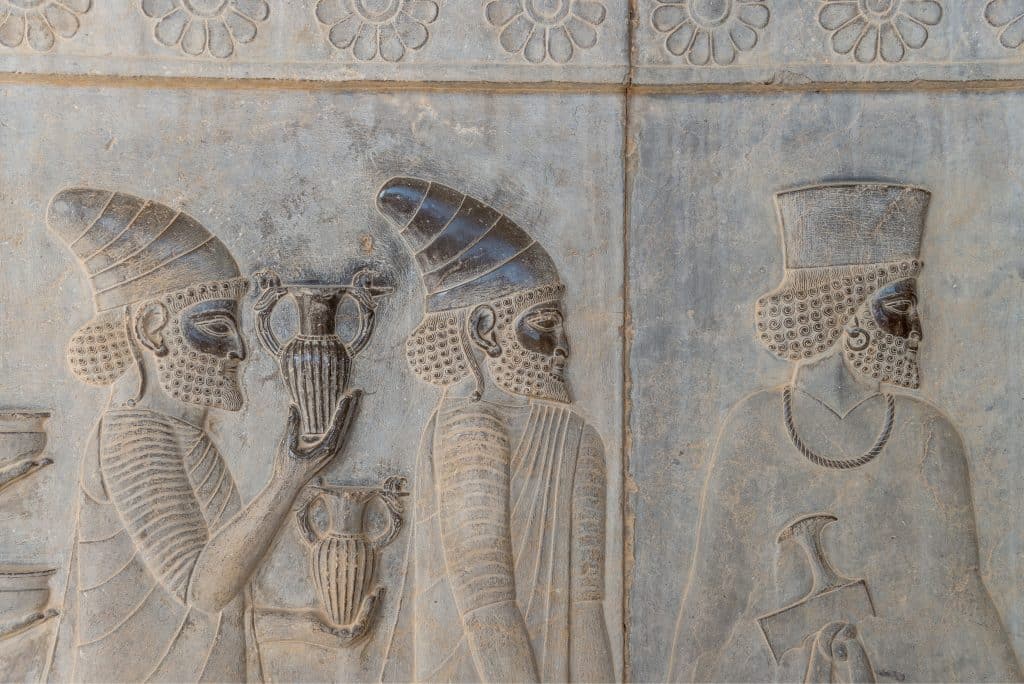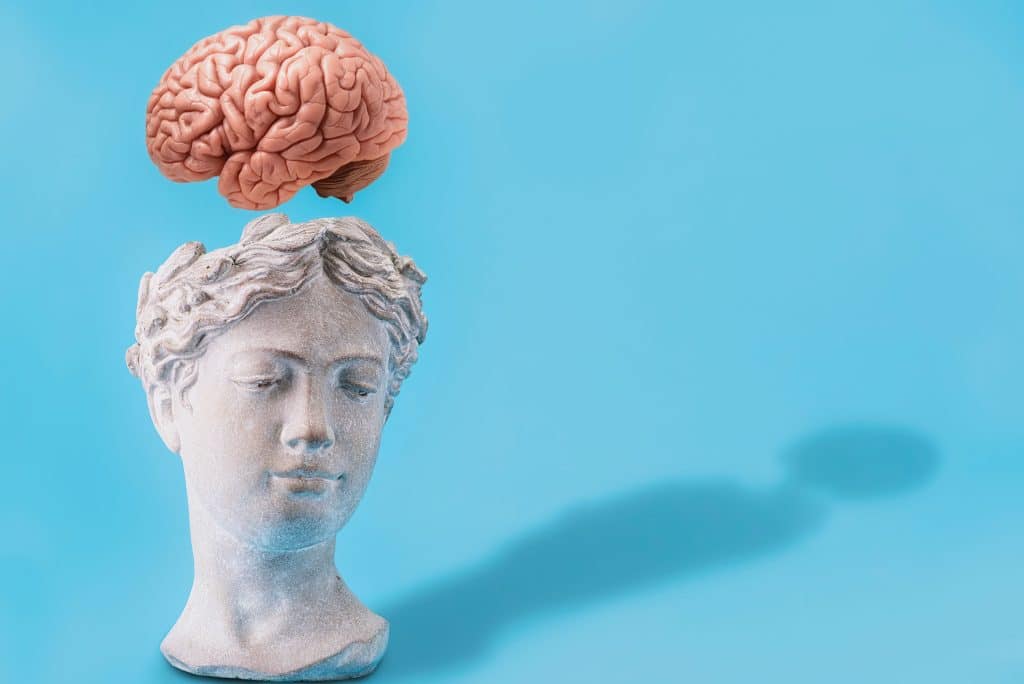History is full of all kinds of stories; some so good, they’re better than fiction. Such is the case with the ancient Persians and a specific ritual that involved making important decisions under the influence of alcohol. Yup, this was a thing. Perhaps we can tweak the methodology today and apply the same practice to smoking weed. Read on to find out more about how the ancient Persians came to big decisions, and how we can update their policy to include stoner logic.
Who were the ancient Persians?
There’s no such thing as Persia anymore. Where Persia once stood is now central Iran; though the old Persian Empire at one point went all the way into Northern Greece from the Indus Valley, and to Egypt from Central Asia. The Persian Empire, also called the Achaemenid Empire, started in 550 BC by Cyrus the Great. At the height of its existence, the empire spanned 2.1 million square miles (5.5 million square kilometers), making it the largest empire of its time, or before.
When looking back at history and the achievements of different peoples in different time periods, the Achaemenid Empire is pointed to for its establishment of a centralized and bureaucratic administration, which ran successfully. Its also recognized for maintaining a multicultural policy of tolerance which acknowledged different religions and languages, and was the first known empire to do so. This included when Persia took over other territories, in which case it allowed the conquered people to retain their own languages, traditions, and administration.
Its also known for its complex infrastructure that incorporated roads and a postal system; and that it used an official language throughout the whole of its territory, along with whatever other languages were spoken. Plus, it apparently employed the use of civil services, like a professional army.
Thanks for dropping in. Sign up for the Cannadelics Weekly Newsletter to access direct updates; and for a range of promotions on stuff like cannabis flowers, vape products, edibles, smoking equipment, cannabinoid compounds (including HHC, delta-8), and a host more. Take a look at all the options; and get yourself stoned!
The Persian Empire lasted until 330 BC when it was overtaken by Alexander the Great, and his Macedonian Empire. Alexander was actually impressed by the Persian system of tolerance, and employed the same ideas in his own empire. Mr. the Great was incredibly respectful of the former Persian ruler after he was found dead (Alexander would have preferred to capture him himself), and buried Darius III – the last of the Persian emperors, in a beautiful and very respectful ceremony, close to Persepolis, in the royal tombs.
One thing to understand about this time period and the information that comes from it, is that most was not recorded by the Persians, but by the ancient Greeks who were enemies of the Persians, and who overtook them. One of the ancient writers who had a lot to say about this empire, was Herodotus, a historian and geographer who lived from approximately 484-425 BC. Herodotus is author of Histories, which details the Greco-Persian Wars. It is Herodotus from which the following story comes to us.
How the ancient Persians made big decisions drunk
You read the heading right! The ancient Persians had an interesting ritual when it came to deciding important matters in life, according to Herodotus. What did they do? They pondered the issue sober, and then took their outcome, and pondered it while drunk to see if they came to the same conclusion. Conversely, if the original decision was made while already intoxicated on wine, they did a round two of going over it, completely sober. As per Herodotus:
“If an important decision is to be made, they [the Persians] discuss the question when they are drunk, and the following day the master of the house where the discussion was held submits their decision for reconsideration when they are sober. If they still approve it, it is adopted; if not, it is abandoned. Conversely, any decision they make when they are sober, is reconsidered afterwards when they are drunk.”
If a decision did not pass muster while both intoxicated and sober, it was thrown away and the whole process started again. It probably isn’t shocking that the ancient Persians were generally big on their wine consumption, and that wine was a big part of culture in general.
The idea isn’t off base with what we tend to do today on our own. We ponder while sober, we ponder while stoned or drunk. We make decisions with our brains in one arena, and rethink the whole thing when in another state of mind. What’s interesting about the ancient Persians, is that this wasn’t individuals making some stoner logic decisions in their own lives, but a way to form governing policy by those in power.

Can you imagine if Congress in the US debated and passed a bill sober, and then set aside a session to do the same thing drunk? I bet it’d encourage a lot more people to watch all those televised congressional proceedings, if they did.
Is it true?
Should we believe the story? Well, for one thing, there’s that pesky issue of Herodotus not being Persian, and, in fact, being from the culture that took over Persia. We know that the tailoring of history goes to the winners of wars, so its quite possible that Herodotus either confused the issue, or embellished it. We don’t have another source for comparison. There is speculation that the story was primarily a way for Herodotus to demean the Persians, by showing them as less civilized; in part because they didn’t dilute their wine with water, like the Greeks did. Something considered barbaric and overly decadent at the time.
It’s also quite possible that as wine was such an important staple of life for the Persians, that what Herodotus remarked on, was simply that wine was present during decision making. Since it had a rather ubiquitous presence in general, this indeed makes sense. If this is true, the wine was a more incidental part of the process, and not the basis for it. One could question how the Persians did so well, if they were making all their big decisions while tanked.
On the other hand, there is evidence that supports the plausibility of wine used in deliberation. In the 6th century CE, a book called The Spirit of Wisdom, a part of the Zoroastrian texts (a grouping of religious texts based around the religion), was published; and discusses the good and bad aspects of wine. In the positive it argues, “this that is forgotten will be remembered and goodness will take place in thought and it will increase the sight of the eye and hearing of the ear and the speech of the tongue, and doing work and managing will proceed faster.”
But it also goes on to make clear “But anyone who drinks wine must be conscious to drink in moderation, since through moderate drinking of wine this much goodness will come to him, because food will be digested and kindle fire [of the body], and increase intelligence and the mind and seed and blood, and reject torment.”
The idea of moderation was left out when Herodotus spoke of the Persians. The Persians specifically associated moderate drinking with being more attentive and mentally on point, but they didn’t associate this with heavy drinking. Looking at it this way, its quite possible that they really did use wine for decision making, but did so with strict control. That the Greeks left out that the Persians were stern about moderation, could be a showing of misunderstanding, or something specifically meant to denigrate the culture, by saying its so low-level that important decisions are made while being blasted.

Is this the same as using stoner logic to solve problems?
Perhaps the biggest takeaways of the practice – should it be true, are that 1) there’s a benefit to thinking about a topic in different states of mind; 2) that certain intoxicating agents might be beneficial for creating a good mindset for such deliberations; and 3) that decisions require time, and shouldn’t be made in one sitting. All these points hold a lot of value.
If the idea is to create a different mindset to think on a topic, and one that might help to understand the situation differently, why not do it with weed? This isn’t to say final decisions should be made only using stoner logic, but the Persians (if the story is true) also didn’t rely on being intoxicated alone, they simply used it as a tool. Maybe going for some stoner logic with a joint in hand, isn’t the worst way to figure your way through something. And maybe making sure you’re cool with your decision while not stoned, is also a good idea.
Not into weed? You can always do like the Persians did, and open a nice cold beer or fresh bottle of wine. And if alcohol isn’t your thing, maybe you do better with a little psychedelic help. Hallucinogens have a way of expanding minds, and seem to assist with different mental issues. Perhaps using them as a tool for problem deliberation is also on point for some people. Maybe, in the end, its just about choosing the right drug to get into the mindset, to do your best and most serious reasoning.
Conclusion
We all have our own process. For some, the idea of stoner logic and drunken decision making is not it. For others, its just a part of the regular day-to-day. If you think it might help you out to think in a different mindset, take a cue from the Persians, and alter your brain a bit to figure out your problems. And if you think you came to something good, give it another think-thru while sober.
If you want to read up on some of the biggest potheads in history – including famous rulers – look here, and to learn more about how weed was used in ancient times, look here.
Welcome one and all! Thanks for making your way to Cannadelics.com; an independent news site providing extensive coverage of the burgeoning cannabis and psychedelics spaces. Hang out with us regularly to remain updated on important happenings, and check out the Cannadelics Weekly Newsletter, to ensure you’re never late to get the news.









